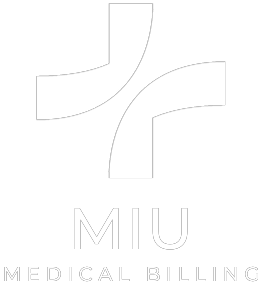Boost Revenue: Powerful Medical Billing Consulting Services
In the intricate world of healthcare management, one critical aspect that often poses challenges is the realm of medical billing consulting services. As healthcare providers navigate through the complexities of patient care, it is imperative to address the financial health of the institution. In this blog, we delve into the significance of effective medical billing consulting services and how they contribute to maintaining a robust bottom line.
Understanding the Landscape
Medical billing consulting services encompass a range of activities that involve the submission and processing of patient claims, invoicing, and revenue cycle management. For healthcare facilities, ensuring accuracy and efficiency in these processes is not only a financial necessity but also a crucial element in providing quality patient care.
1. Identifying Denials: The Silent Revenue Killers
One of the primary challenges faced by healthcare providers is the denial of claims. Denials not only lead to delayed payments but can also result in revenue loss if not addressed promptly. Robust medical billing consulting services employ advanced analytics and automation tools to identify and rectify potential denial triggers.
Effective denial management involves scrutinizing denied claims, identifying patterns, and implementing corrective measures. This proactive approach not only reduces the financial strain on the hospital but also enhances the overall efficiency of the billing process.
2. Leveraging Technology for Efficiency
In the rapidly evolving landscape of healthcare, technology plays a pivotal role in optimizing medical billing consulting services. Integrated electronic health record (EHR) systems, artificial intelligence, and machine learning algorithms contribute to accurate coding, reducing errors, and minimizing denials.
Automated systems streamline the billing process, from patient registration to claim submission, allowing healthcare providers to focus more on patient care rather than getting bogged down in administrative tasks. This not only enhances the patient experience but also ensures a more efficient revenue cycle.
3. Compliance Matters: Navigating the Regulatory Landscape
Medical billing consulting services must navigate a complex web of regulations and compliance requirements. Failure to adhere to these standards can result in fines, reputational damage, and revenue loss. A robust billing service not only ensures accurate billing but also stays abreast of the latest regulatory changes, safeguarding the hospital’s financial health.
4. Patient-Centric Billing: Enhancing Transparency and Communication
Beyond the intricacies of claims and coding, medical billing consulting services are evolving to prioritize patient-centric approaches. Transparent communication with patients about their financial responsibilities, estimated costs, and available payment options fosters trust and reduces the likelihood of disputes. By integrating patient-friendly billing practices, healthcare providers not only improve the overall patient experience but also increase the likelihood of timely payments, contributing to a healthier financial outlook.
5. Continuous Training and Education: Empowering Billing Teams
The ever-changing landscape of healthcare regulations and billing codes demands a well-trained and adaptive billing team. Investing in continuous education for billing staff ensures they stay abreast of the latest industry updates, coding changes, and compliance requirements. A well-informed team is better equipped to navigate the nuances of hospital billing services, reduce errors, and improve overall efficiency. Regular training sessions and workshops empower billing professionals to proactively address emerging challenges, reinforcing the backbone of a resilient revenue cycle. As technology and regulations continue to advance, an educated billing team becomes a valuable asset in maintaining financial health.
MIU’s Billing Services: A Fortress Against Denials
In the challenging landscape of healthcare billing, MIU emerges as the guardian against the formidable threat of claim denials. Our billing services stand as a fortress, fortified with advanced technologies, meticulous processes, and a commitment to precision. Leveraging cutting-edge analytics, we proactively identify potential denial triggers, implementing preventive measures to safeguard against errors. In the event of denials, MIU’s expert team conducts thorough analyses, crafting tailored solutions to address root causes. Through a combination of technological prowess, proactive strategies, and resilient recovery plans, MIU’s billing services provide a robust defense, ensuring healthcare providers navigate the billing landscape with confidence and financial resilience
Conclusion
In conclusion, the significance of medical billing consulting services in maintaining a healthy bottom line cannot be overstated. By diagnosing and addressing denial issues, leveraging cutting-edge technology, and staying compliant with regulations, healthcare providers can fortify their financial foundations. As the healthcare landscape continues to evolve, investing in effective hospital billing services is not just a strategic move; it’s a vital prescription for a thriving institution.
Remember that implementing comprehensive medical billing consulting services is the key to your hospital’s financial future. Allow us to be your partner in navigating the difficulties of revenue cycle management and guaranteeing your healthcare institution’s bottom line.




